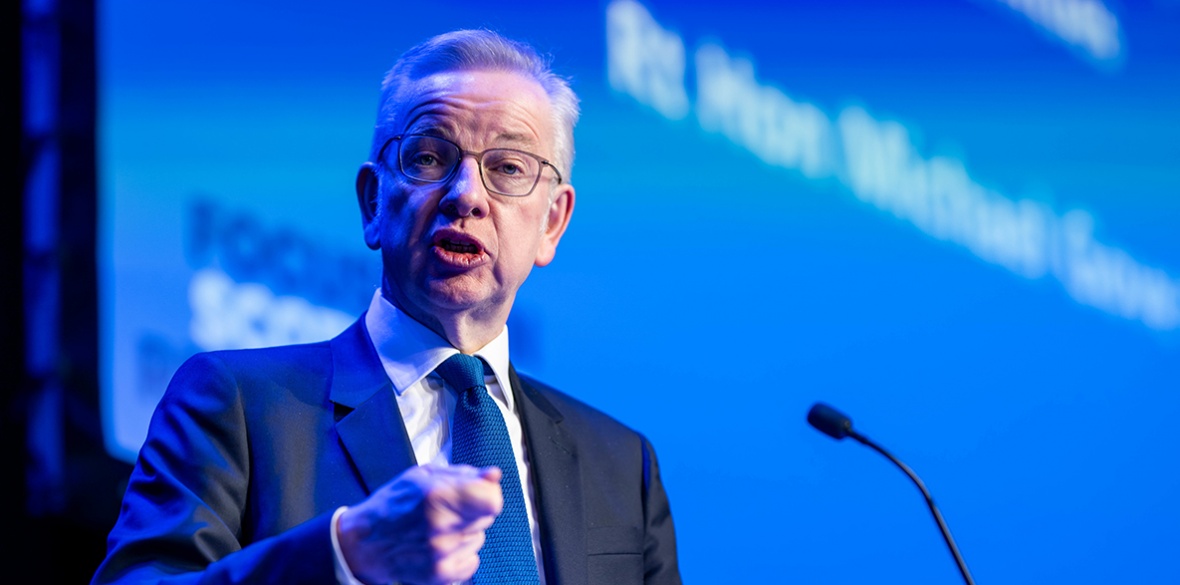SCORES of Tory MPs are announcing in advance they will throw in the towel at the general election, which Labour is expected to win.
Work to shape the political landscape the next government will confront is now essential, particularly because Labour is determined not to meet popular demands for public ownership, wealth redistribution or peace.
The left cannot confine ourselves to condemning what the government does. We need strategies to undo it. This applies to the toxic new definition of extremism announced by Michael Gove last week, which could have catastrophic long-term consequences.
The new definition — and its associated practice, the labelling of certain organisations as extremist by ministerial decree — must not be allowed to bed in. We need mass refusal to accept it, declarations by devolved and local government, trade unions, charities and campaigns that we wholly reject it.
The joint statement by key organisers of the mass street movement for Gaza that Gove’s “redefinition of extremism … is in reality an assault on core democratic freedoms” is the right approach.
While the Muslim Association of Britain, prisoner rights campaign Cage and Muslim Engagement and Development — three organisations named by Gove — are quite right to challenge him to repeat his arguably libellous remarks outside Parliament, where they would not be covered by parliamentary privilege, the left’s focus should not be on whether specific organisations meet his criteria, but on beating back his authoritarian overreach.
The new extremism definition is not a legal one, and groups the government names do not face a charge they can contest in court. This is effectively a ministerial licence to blacklist organisations, intended to restrict their access to public officials, cut off their funds and turn them into pariahs.
The definition states that ideologies which seek to “undermine, overturn or replace the UK’s system of liberal parliamentary democracy” are extremist. This categorises any group fundamentally opposed to the status quo as extremist and illegitimate.
Though the government has not stated how the definition will affect existing “anti-extremist” programmes like Prevent, it fleshes out Prevent’s current guidance that believing in socialism, communism or anti-fascism are red flags indicating potential extremism.
There is no reassurance in Gove’s failure, so far, to name any socialist organisations as extremist, since ministers will have unlimited power to do so in future. And opposition to capitalism does entail a comprehensive rejection of the existing British political and economic system, which is capitalist. Until now, however, peacefully advocating that has not been officially penalised.
What might the consequences be? In Germany, the Morning Star’s sister paper Junge Welt has been labelled extremist in successive reports of the domestic intelligence agency, because its commitment to ending capitalism is an “anti-constitutional goal.”
Consequences have included companies declining to carry adverts for it, libraries refusing to stock it and universities blocking access to its website.
We can easily see how the new definition could be used to harass and suppress left-wing organisations and media outlets here in similar ways, reinforcing the general trend towards censorship and diminished rights to free speech and assembly.
Labour, which responded to Gove’s announcement by saying he was merely “tinkering” with the definition and implying it would take an even more draconian approach, cannot be trusted not to use the new power in this way.
Keir Starmer’s entire leadership has been devoted to delegitimising the socialist politics of his predecessor and hounding him and his supporters out of the system: in government his inclination will presumably be the same.
Our defence must be to go on the attack against the extremism definition, to campaign publicly for its reversal and to sign up every organisation that cares for its democratic image to officially oppose it.
The next government should inherit a policy that is already utterly discredited and unworkable because its right to define extremists is universally rejected.









